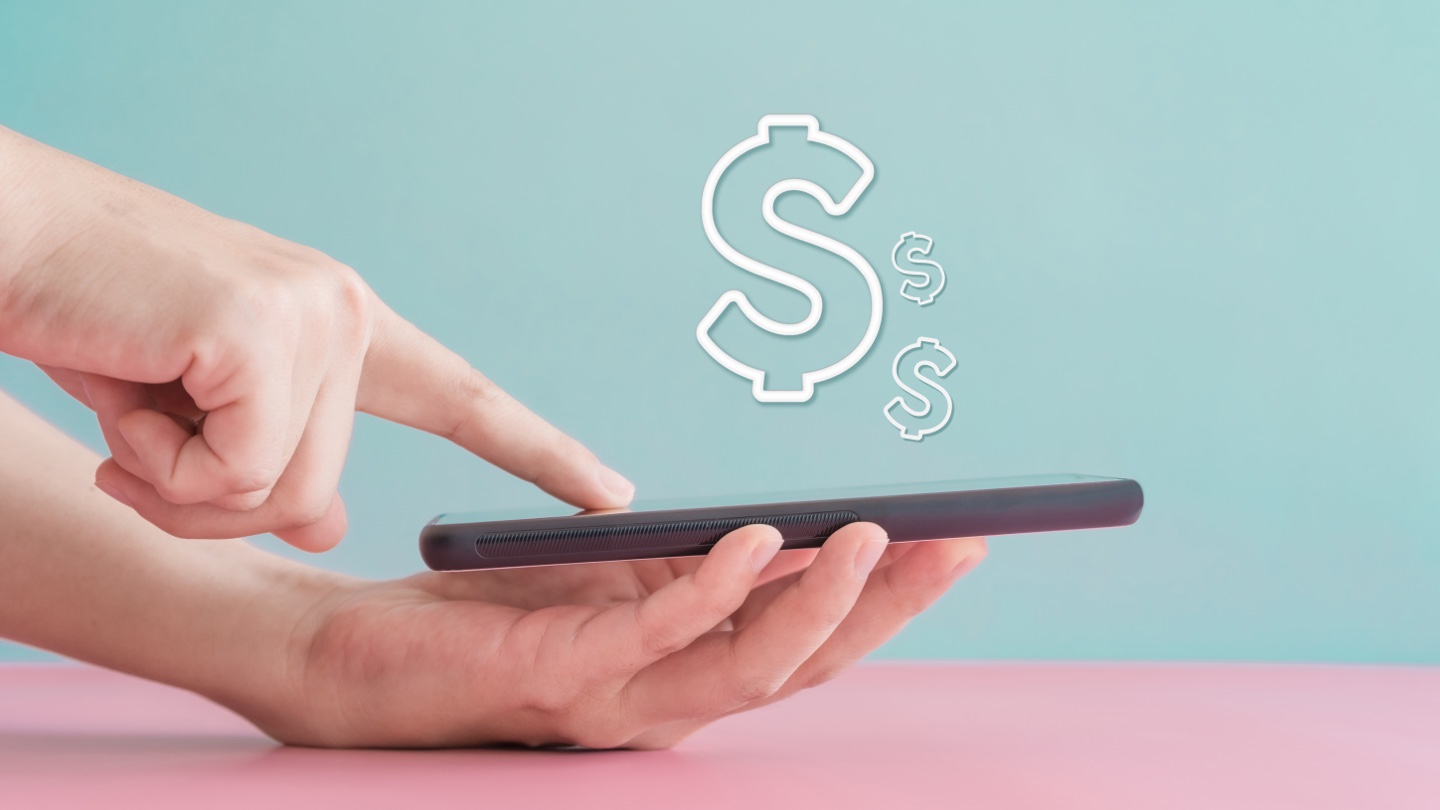Want more cash? The money you want could be hiding in the payments you’re making now. Drop that specialty macchiato and check out these 10 hacks to save money on your monthly bills.
1. Cancel unused memberships
If your gym pass is catching more dust than swipes, it may be time to cancel. But gyms aren’t the only used charges potentially being withdrawn. Have you ever signed up for a free trial to snag a movie for the night? How about a music or dating app? Some of these common downloads may be free at first. But after a week or more of use, membership fees could apply.
Check your bank statement regularly for any items you no longer use. If you can do without, click the cancel button to save some money.
2. Get rid of cable
Before you scream at the screen, getting rid of cable doesn’t necessarily mean you have to do without your favorite shows. Instead, check out some cheaper alternatives. Depending on the company, basic cable can run you anywhere from $40 to $60 or more per month.
Alternatively, you can stream the same great shows at a fraction of the cost. Love house shows? There’s an app for that. Can’t live without sports? You guessed it, there’s an app for that too. Write down your must-have channels and do a quick internet search to find the best streaming app to fit your taste.
3. Renegotiate service bills every 6 months
Did you know that service bills such as your internet, cell phone, and car insurance can all be negotiated for a lower rate? It’s true! And if you don’t check your bill every month, extra charges can creep in overtime. To make sure you getting the best deal possible, call your service providers and ask about any discounts that may offer. Whatever price they give you, shop around to see if you can find a lower rate elsewhere.
With no shortage of competition, you may be surprised to learn what some companies may offer just to get your business. For best results, consider doing this at least every 6 months.
4. Stop using delivery services
Seriously. Stop it. While having your groceries and restaurant food delivered straight to your door is amazingly convenient, it also costs a ton of money. Delivery services carry a slew of hidden fees and tips included in the final charge. To put things into perspective, a $100 grocery bill could end up costing you $130 or more for the added delivery perk. Spread this out over a few deliveries a month and you’ve got yourself a very hefty bill of charges. If you want to save money, mask up and go to the store on your own.
5. Cut back on outside food and beverages
Speaking of food, this costly item can really sneak up on you. A great way to save money each month is to cut back on outdoor food and beverages. According to Statista, the average American spends anywhere from $2,000 to $3,000 on restaurant food per year. The pandemic may have slowed down our dine-out routines. But even take-out could still be costing you.
Beverages can add up too. If you’re spending $5 a day on that sweet macchiato each morning, then that frothy cup of joy is costing you about $150 a month! To save money, consider cutting back in this department. Brew at home and buy in bulk to make larger meals you can freeze a spread out over several meal nights. Even small changes in the food and beverage department can make a big difference on your monthly bills.
6. Limit charges on high-interest credit cards
If you’ve been charging items on a high-interest credit card, you’re likely paying way more than you bargained for. For example, let’s say you charge a $1,000 television on a credit card with a 24% APR. If you fail to pay off your statement balance on its due date, the interest on this item (and any others you may have charged) will compound over the course of the year.
Depending on how much you pay and how long you carry a balance, this same television could end up costing you $1,240 or more! Not to mention the additional cost of any other items you may have charged. If you want to save money, try and limit or pay off changes on or before the due date when using a high-interest credit card.
7. Maintain a healthy credit score
If high interest rates are causing you to overpay, maintaining a healthy credit score could help you save money (see my $0 credit score). Here’s how. Whether you’re in the market for a new credit card or another credit-based purchase such as an auto loan or mortgage, your score will help determine how much you could end up paying. If you have good credit, you may be more likely to qualify for a low interest rate. Meanwhile, a bad credit score could end up costing you hundreds to even thousands of dollars in additional interest over time. To put your money where your credit is, check out the sample scenario below.
- Item: $20,000 used car
- Loan term: 60-months
- Potential interest rate with good credit: 3%
- Potential interest rate with bad credit: 15%
- Cost of the car with good credit: $21,562
- Cost of the car with bad credit: $28, 548
- Overall saving between good credit and bad credit = $6,986 for the EXACT same vehicle!
The example above is for illustration purposes only and the exact offer you may receive may vary. However, there is no doubt that your credit score will largely influence the interest rate and terms – if any, you could be offered. With this in mind, one of the best long-term things you can do to save money is to maintain a healthy credit score.
8. Install a coupon or cash-back app
Installing a coupon or cash-back app to your browser could help you save money on everyday purchases. A quick internet search will reveal a ton of possible options, including apps like Honey and Ibotta. Once you install, coupon apps like Honey are able to scour the internet for various coupon codes that may apply to your purchase.
Meanwhile, cashback apps like Ibotta operate on a rewards system and offer cash-back incentives for qualifying purchases. App-based savings aren’t always a guarantee and certain fees, terms, and conditions may apply. But it could be worth a look to find out if they make ‘cents’ for you.
9. Consider consolidating your debt
If large amounts of debt are becoming too big to bear, you may want to consider consolidating your debt. A debt consolidation is when you combine various forms of debt into one lump sum with one monthly payment. Not only can this help you simplify your bills, it may even help you save money IF you qualify for a lower interest rate than what you’re paying now. There are many ways to consolidate debt, including options such as a debt consolidation loan or a debt management plan, to name a few.
If you’re not sure where to begin, nonprofit credit counseling services, like ScoreShuttle’s preferred partner, DebtWave, may be able to help. Depending on your unique financial situation, a debt consolidation may or may not be right for you. Therefore, it’s wise to speak to a financial advisor before making any major money moves.
10. Team up on childcare cost
They say it takes a village. And if you apply this motto to childcare costs, it could also save you some money. In some states, childcare can cost almost as much as rent. Yikes! To cut cost and potentially even improve your child’s quality of care, team up with a family member or friend on the cost of a sitter. You could switch up houses each week or designate a consistent drop-off home for daily care.
In addition to childcare, you can also save money by taking this same tip and using it for all kido needs. After use, many parents will do just about anything to get rid of outgrown clothes, furniture, and toys. In fact, some will even give them away for free just to make space. If your social circle isn’t into parenthood quite yet, there are also plenty of groups to join online that may offer these same great parental perks.
Resources: [https://www.statista.com [https://debtwave.org/]
Disclaimer: ScoreShuttle does not give financial advice or guidance on credit improvement. Always be sure to do your own research before making any financial decision.
Apps, services and/or products mentioned are not affiliated, associated, nor endorsed by ScoreShuttle, unless otherwise noted. Links and mentions to third-party websites are provided for convenience only. ScoreShuttle does not endorse nor support the content of any third party and is not responsible for the content of a third-party website.



